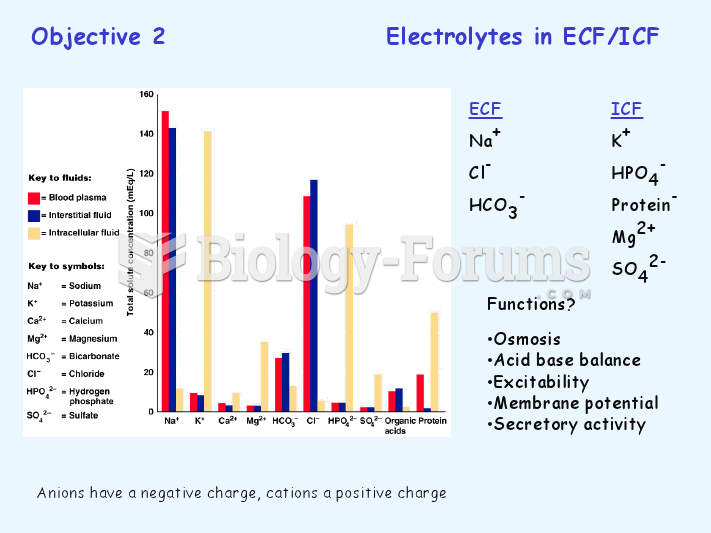|
|
|
Illicit drug use costs the United States approximately $181 billion every year.
As many as 20% of Americans have been infected by the fungus known as Histoplasmosis. While most people are asymptomatic or only have slight symptoms, infection can progress to a rapid and potentially fatal superinfection.
The calories found in one piece of cherry cheesecake could light a 60-watt light bulb for 1.5 hours.
According to the American College of Allergy, Asthma & Immunology, more than 50 million Americans have some kind of food allergy. Food allergies affect between 4 and 6% of children, and 4% of adults, according to the CDC. The most common food allergies include shellfish, peanuts, walnuts, fish, eggs, milk, and soy.
Approximately 500,000 babies are born each year in the United States to teenage mothers.







